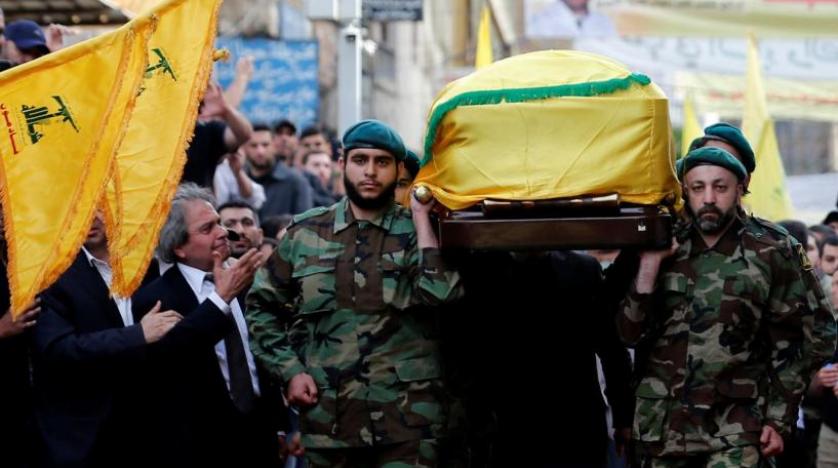Nearly seven years have passed since Hezbollah got practically engaged in the Syrian war – the movement’s biggest challenge since its establishment in 1982.
Today, as the battles calm down, the party has returned to the political work inside Lebanon, seeking to invest what it considers “filed victories”. Thus, the party leadership and observers have started to evaluate this experience.
Perhaps the first thing to look for in any attempt to assess Hezbollah’s experience in the Syrian war is the number of party members killed on the field, amid a total blackout on the matter. However, the Syrian Observatory for Human Rights announced on the war’s seventh anniversary that around 122,000 members of the Syrian regime and its pro-Syrian and non-Syrian armed forces were killed, including 63,820 Syrian soldiers and 1,630 members of the Lebanese Hezbollah.
As battles intensified in Syria, specifically in 2013 and 2014, the number of Hezbollah fighters there was estimated at 5,000. The AFP, in a past report, noted that elements of the party received training in Lebanon and Iran before going to the field.
The number of party fighters in Syria has recently dropped significantly, in conjunction with the decline of fighting intensity. The director of the Syrian Observatory for Human Rights, Rami Abdul Rahman, told Asharq Al-Awsat that those were currently concentrated in the vicinity of Deir Ezzor, Bukamal, Al-Qusayr, Rif Dimashq, Syrian Badia Aleppo and Al-Qamishli airport.
The movement refuses to set a date for its withdrawal from Syria. Its secretary-general, Hassan Nasrallah, said last summer that the pullout would be at the request of the Syrian leadership.
Die Welt, a German newspaper, recently published a report on the end of Hezbollah’s mission in Syria, after losing a large number of fighters on the battlefield. The newspaper noted that the party would maintain an advisory role after participating in the Syrian war with about 8,000 fighters.
Opinions converge over Hezbollah’s gains in the Syrian war. Supporters and opponents alike agree that the party achieved a great combat experience. The head of the Middle East Center for Strategic Studies, retired Brigadier General Dr. Hisham Jaber, said that the “combat experience gained by the party fighters [during the war] cannot be provided through training organized by the party leadership.”
The Washington Institute for Near East Policy published in 2016 a study prepared by an IDF officer in 2014, in which he concluded that Hezbollah could pursue a more aggressive combat strategy in any future war with Israel in order to shorten the duration of the conflict. He added that the deep engagement in Syria affected the overall approach of the organization in the planning and implementation of military operations.
The military gains of the party are not limited to combat experience. Military experts said that Hezbollah has probably acquired large quantities of weapons over the past years, both from Syria and Iran. Jaber noted that in the July 2006 war, Israel estimated the number of surface-to-surface missiles possessed by Hezbollah at around 20-30 thousand, but today, it puts them at around 100-150 thousand.
Politically, Hezbollah considers that the most important thing it has gained from engaging in the Syrian war is to prevent what it calls “terrorist organizations” from reaching Lebanon, especially after the battle of al-Qusayr. Jaber said that the party also considered itself a major contributor, along with Russia and Iran, to support the Syrian regime and prevent its collapse.
However, as much as the party won, it lost its popularity both inside Lebanon and on the Arab level, in addition to losing hundreds of its members. Jaber emphasized that the number of party members killed in Syria ranged between 1,500-2,000, in addition to hundreds of people with disabilities.
A study by the Washington Institute for Near East Policy in 2016 stated that when Hezbollah began its intervention in Syria, its priorities, strategies and rhetoric changed, and a much larger proportion of its budget was allocated to military spending. Despite the continued funding for social services, a larger proportion has been directed to families and institutions associated with Hezbollah’s military infrastructure as part of the party’s efforts to support its forces.
Abdul Rahman told Asharq Al-Awsat that the party “lost most of the popularity it enjoyed in Syria, especially in the Sunni and Shiite communities, as well as among the other components.”
Responsibility for the information and views set out in this article lies entirely with the author.


